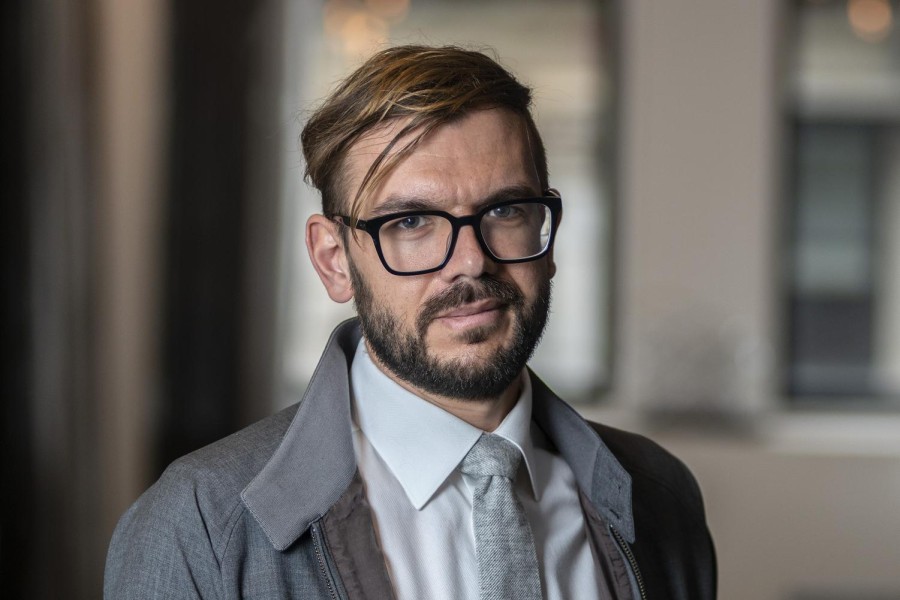NYU prof. gets $75,000 for work on quantum physics
Dries Sels, a professor in the university’s physics department, has been awarded the Alfred P. Sloan Foundation Research Fellowship for his work on quantum physics and machine learning.
Assistant professor of physics Dries Sels, who recently won an Alfred P. Sloan Foundation Research Fellowship.(Courtesy of the Simons Foundation)
March 1, 2023
Dries Sels, an assistant professor of physics at NYU, was recently awarded a Sloan Research Fellowship for his work on quantum dynamics and machine learning. The fellowship, granted by the Alfred P. Sloan Foundation, was awarded to 125 early-career scholars in 2023. The selected scholars demonstrated utmost excellence in contemporary scientific research.
The Alfred P. Sloan Foundation is a nonprofit grantmaking foundation dedicated to improving the welfare of researchers. Each winner receives a two-year fellowship and $75,000. The foundation supports original research through grants, furthering developments in education, science, technology and economics.
Sels, one of the foundation’s most recent recipients, is a theoretical quantum physicist, and focuses on the relationships between atoms and subatomic particles. He also specializes in quantum computing which differs from normal computing in that there are no limitations, granting users free reign to do more with their devices.
“My research is about how we can actually control those kinds of things, from which we make the quantum computer,” he said. “How do we manipulate this quantum state to turn it into a computer?”
Matthew Kleban, the department chair of physics at NYU, nominated Sels to the foundation to receive the fellowship because he is an innovative physicist working at the forefront of his field.
“Theoretical quantum physics is a very exciting area,” Kleban said. “It can do things that sound simply impossible, like create particles that are in two incompatible states at the same time. In principle, this allows a single processor to operate in parallel with itself, greatly speeding up computations.”
Sels said that most of the money he is receiving from the fellowship will be given to graduate students to pursue their own research. Several assist Sels with his research, including Joseph Clayton Peacock, who is studying physics at the Graduate School of Arts & Science.
“Funding isn’t always guaranteed in research, of course, and this is particularly true for theory students,” Peacock said. “I am happy to hear that we will have this extra financial support.”
Sels expressed his gratitude for the fellowship and the recognition it has given him and his research. He intends to use the grant to further his research and discover more about quantum mechanics in the process.
“It’s always nice to see that there’s been some external validation of our work,” Sels said. “The list of people that got awarded a Sloan fellowship includes some very prominent people in physics in general, so it’s nice to be in that list.”
Contact Clara Spray at [email protected].
























































































































































